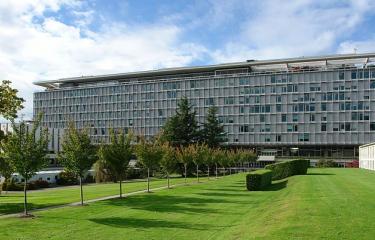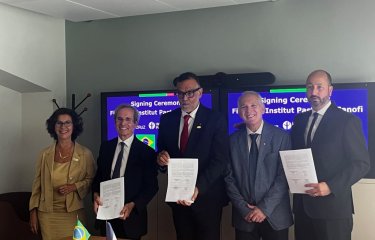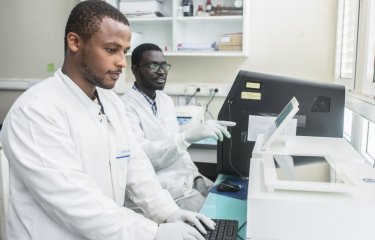La 70e Assemblée mondiale de la santé s’est tenue du 22 au 31 mai derniers à Genève. A cette occasion, l’association Pasteur International Network a pu faire sa toute première déclaration (voir ci-dessous) au cours de la session « Recherche et Développement sur les maladies potentiellement émergentes » par la voix de Nadia Khelef, représentante de l’Institut Pasteur auprès de l’OMS. La reconnaissance en 2016 de l’association Pasteur International Network comme acteur non étatique en relation officielle avec l’OMS lui permet de siéger à l’Assemblée mondiale de la santé et à son bureau exécutif et d’accroitre ainsi la visibilité de ses actions auprès de l’institution des Nations-Unies et des autres grands acteurs internationaux.
Au cours de cette même assemblée, Tedros Adhanom Ghebreyesus a été élu en tant que Directeur Général de l’OMS pour une mandat de 5 ans à compter du 1 juillet prochain.
DECLARATION :
The series of dramatic outbreaks that occurred during the recent years (Ebola, Zika, MERS), with no appropriate diagnostics and no approved drugs or vaccines, have highlighted again the need for more R&D to better organize preparedness and response to epidemics.
Pasteur International Network Association (PINA) represents 33 institutes worldwide working in research, public health and education.
We support WHO efforts to accelerate R&D for potentially epidemic diseases and improve policy coherence across its actors.
Since its start, we have contributed to the R&D Blueprint consultations and activities, as well as to other WHO activities in the field during the most recent epidemics, for outbreak investigations, diagnostic development or validation, linking with countries and WHO.
As such, PINA acknowledges WHO’s leading role in this initiative and encourages WHO pursuing its actions to facilitate the development and delivery of appropriate tools that will hopefully diminish the burden on populations, save lives and minimize socioeconomic impact.
We believe that affordability and accessibility should be included in development plans for new medical tools related to diseases affecting poor populations, even if they have a potential commercial market (ie Zika and MERS-CoV) and we encourage WHO to keep take positions supporting these goals.
We also acknowledge WHO’s efforts to establish a ‘Blueprint Global Coordination Mechanism’ with different entities, including PINA.
We recommend that WHO keeps a strong leadership on coordinating this mechanism, stimulating its organization and its implementation.





